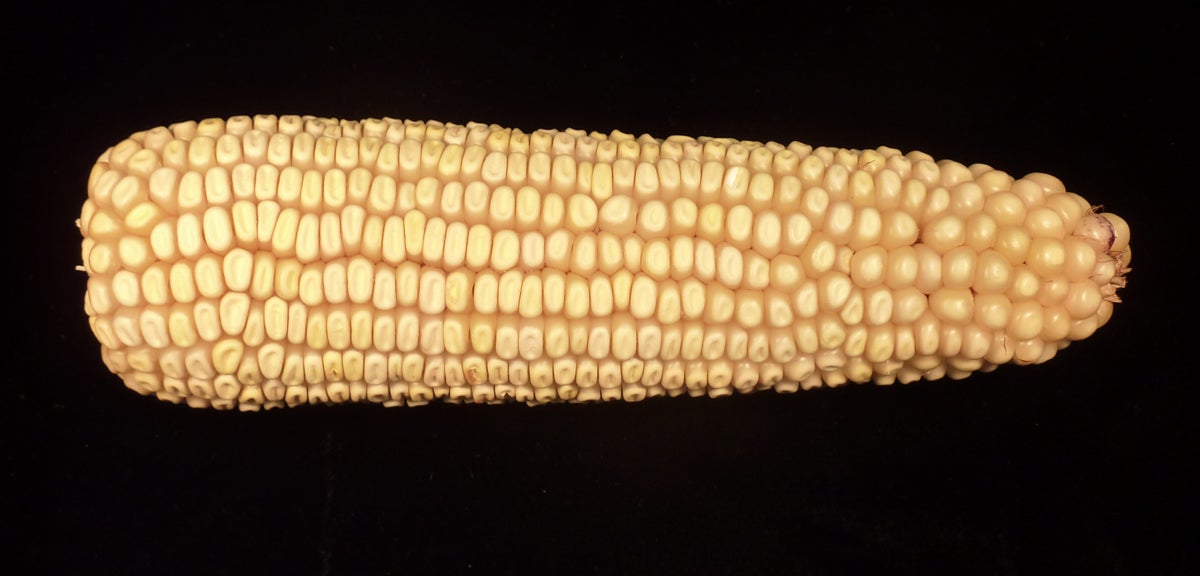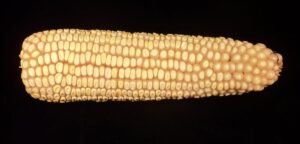The significance of cereal crops to global agriculture, economy, food security and international stability is well documented and widely understood. The functional development of a genome-level knowledge base linking genes to phenotypes in cereal species is critical to understanding fundamental physiological functions important to crop improvement. The capability to create, test and cultivate transgenics has enabled some of the most innovative and important scientific discoveries and agricultural achievements over the last decade. The ability to knock-out (down) gene expression, conduct promoter expression analyses, make specific adjustments in protein structure and function, and observe over-expression and ecotopic characteristics render transgenic technology is an essential genomic resource. Transgenic corn methodology is both difficult technically and time consuming. The PBL Kausch lab has developed significant expertise in this methodology allowing genetic transformation of maize to improve nutrition. HarvestPlus/CIAT Grant titled- “Transgenic Products to Increase Carotenoid Levels in African Maize.” is a collaborative effort with Stephen Dellaporta, John Mottinger, Albert Kausch, Joseph Tome, and Cesar Martinez HarvestPlus 161,939/yr 11/01/09 – 06/30/13 Yale University, University of Rhode Island, CIAT
This grant investigates methods to nutritionally enhance maize germplasm specifically for African agriculture. it is well known that vitamin A and iron deficiencies are a source of health problems in many developing countries and are wide spread in Africa. One way to ameliorate these deficiencies is to increase levels of these vital nutrients in corn.
Hybrid Systems for Grain Improvement for African Germplasm (The Bill and Melinda Gates Foundation)
 Production of hybrid seed in rice and sorghum depends on suboptimal sterility systems thus robust hybrid systems are urgently needed to enhance productivity of these important staples. The strategies developed here will explore the implementation of robust, genotype-independent hybrid technologies into these and other important cereal species potentially contributing to more than 25-30% increases in productivity further enhancing to food security.
Production of hybrid seed in rice and sorghum depends on suboptimal sterility systems thus robust hybrid systems are urgently needed to enhance productivity of these important staples. The strategies developed here will explore the implementation of robust, genotype-independent hybrid technologies into these and other important cereal species potentially contributing to more than 25-30% increases in productivity further enhancing to food security.
Our consortium of international scientists is deeply committed to the mission of extending robust hybrid technologies to sorghum, millets, rice and other cereals. This commitment is the fundamental reason we have invested over 25 years conducting research into the genetic pathway of monoecy (staminate and pistillate flowers) in maize and related grasses. A natural extension of this work will focus on developing technologies to efficiently produce hybrid seed in other cereals to combat hunger and malnutrition, while providing a nurturing environment to train international scientists to reach their full potential. These goals are consistent with the Gates Foundation’s mission to address key constraints to the productivity of crops important to smallholder farmers. In effect, our mission is to make autogamous cereal crops, such as rice and sorghum, more “maize-like”. Extending hybrid traits into cereals crops will have a major impact on food supply in Africa and Southeast Asia.
Investigators and Institutions:
Stephen L. Dellaporta, Yale University
Joe Tohme, International Center for Tropical Agriculture (CIAT)
John Mottinger, Plant Biotechnology Laboratory, University of Rhode Island
Albert P. Kausch, Plant Biotechnology Laboratory, University of Rhode Island


